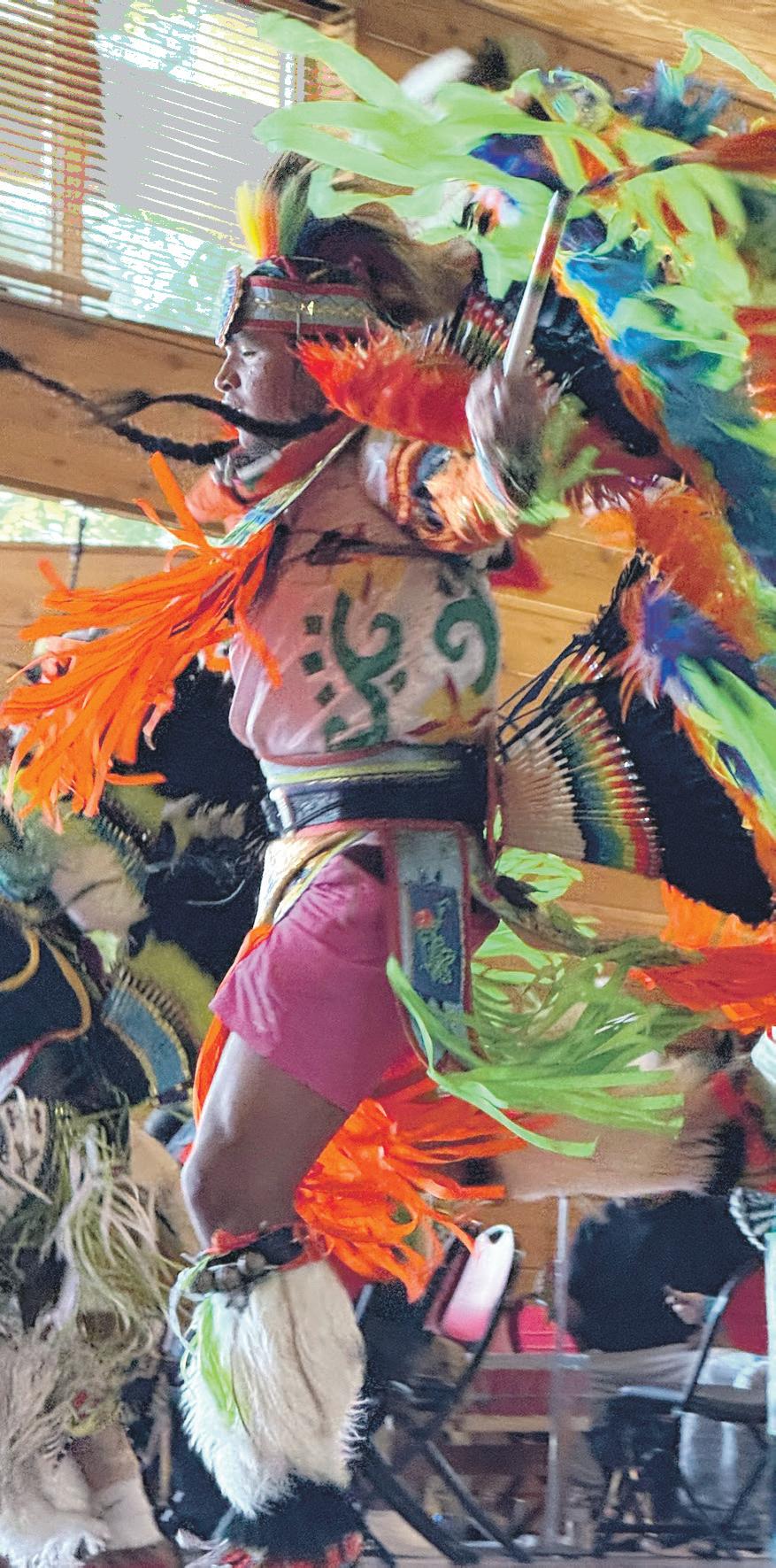
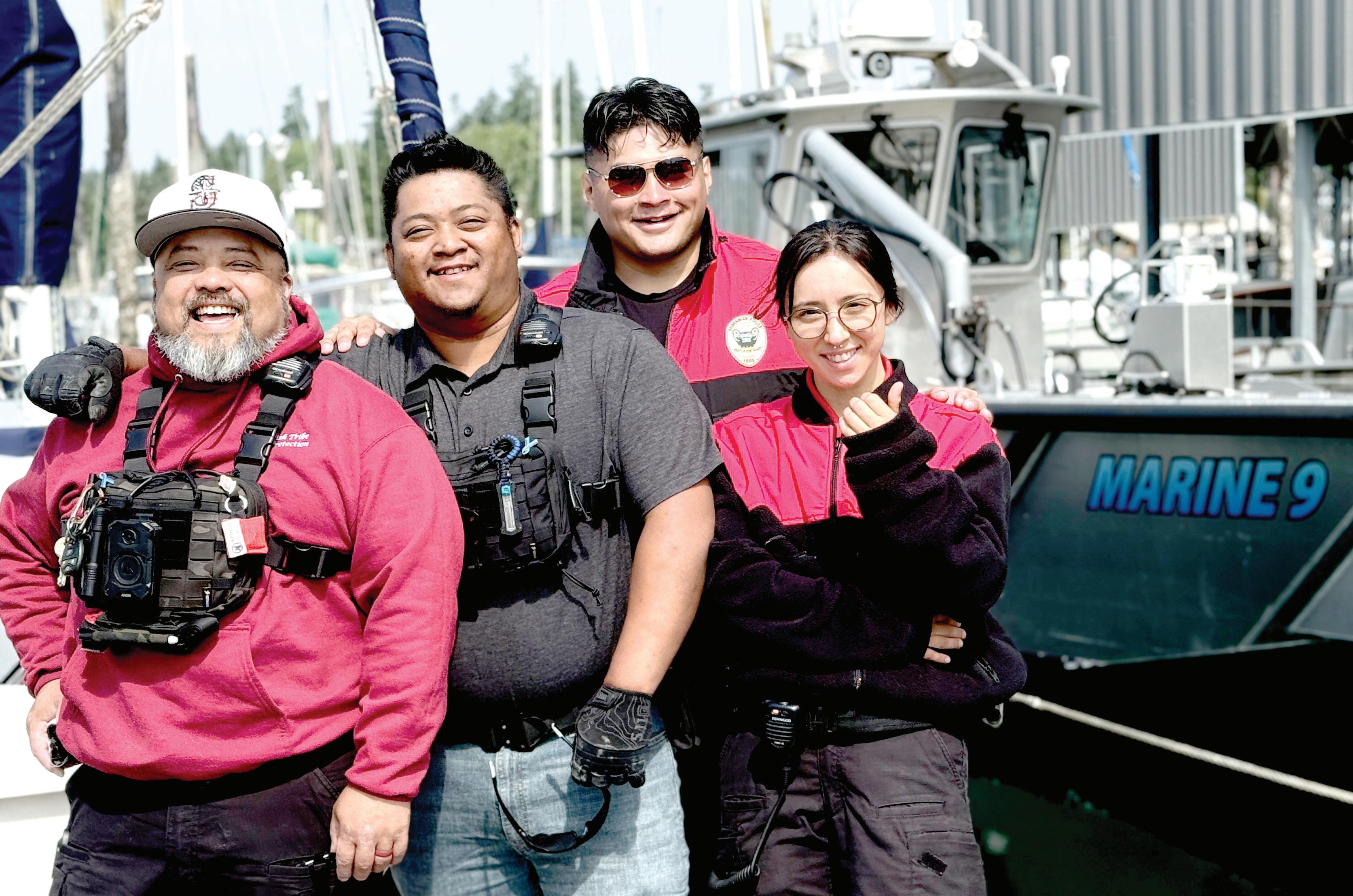
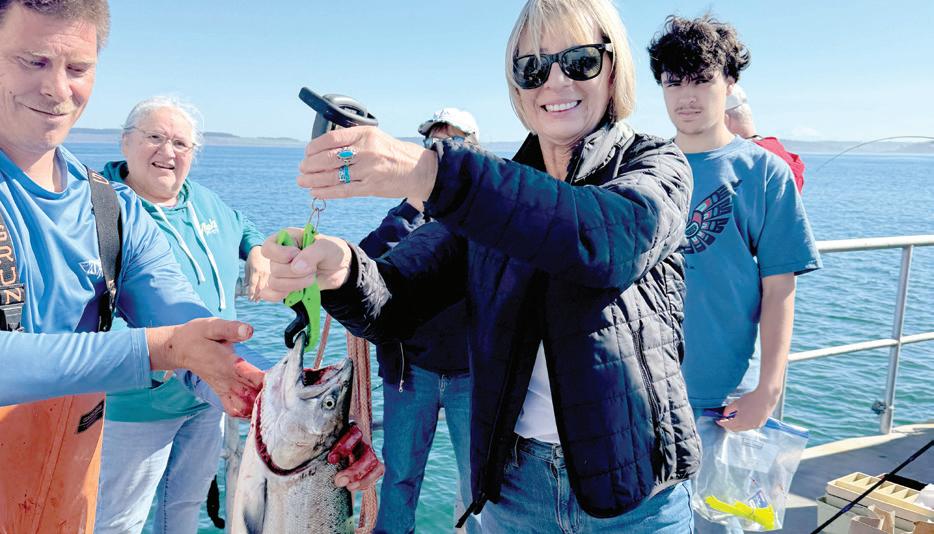
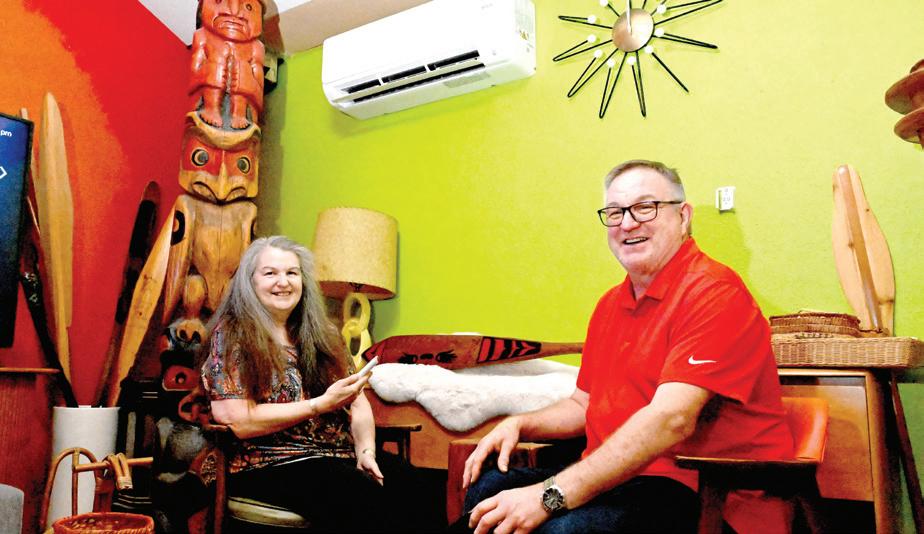





Suquamish Tribal Council meets July 8 & 21. Agenda and links sent via SUN Weekly Update & SUN text.
Suquamish Tribal Gaming Commission meets July 8 & 22, 10am at the Gaming Commission Bldg. Call (360) 394-8652 for details.
Suquamish Warriors meets July 1, at 5:30pm at the Warriors Vet Center.
Suquamish Seafoods Board next mtg. July 22. Call Shanel Carlson at (360) 394-8512 for details.
PME Board meets July 16. Contact Emily Sato at emilysato@clearwatercasino.com for details.
Suquamish Museum Board meets July 17, 10am-noon at Museum. For info call (360) 394-8499.
Elders Council meets July 15, 2-4pm. At Elders Lodge, call (360) 394-8417 for details.
Recovery Meetings. All are welcome to recovery meetings, held Mon-Fri, 6pm at the Wellness Center.

Community Events
Culture Camp July 8-10. House of Awakened Culture.
Suquamish Warriors Salmon Fest
July 12 at the Suquamish Ball Field from 10am-2pm. Free BBQ, Horseshoes & Cornhole games. All are welcome!
Summer Enrichment Camp
July 15 -17, 22-24, 10am-2pm at Original Tribal Center.
Enhanced Tribal ID Workshops
July 22-23. Treaty Protection Office, 18490 Suquamish Way NE, Suquamish. More info call (360) 394-1332.
Canoe Journey Hosting July 27.
Chief Seattle Days August 15-17. See ChiefSeattleDays.org for all the details!
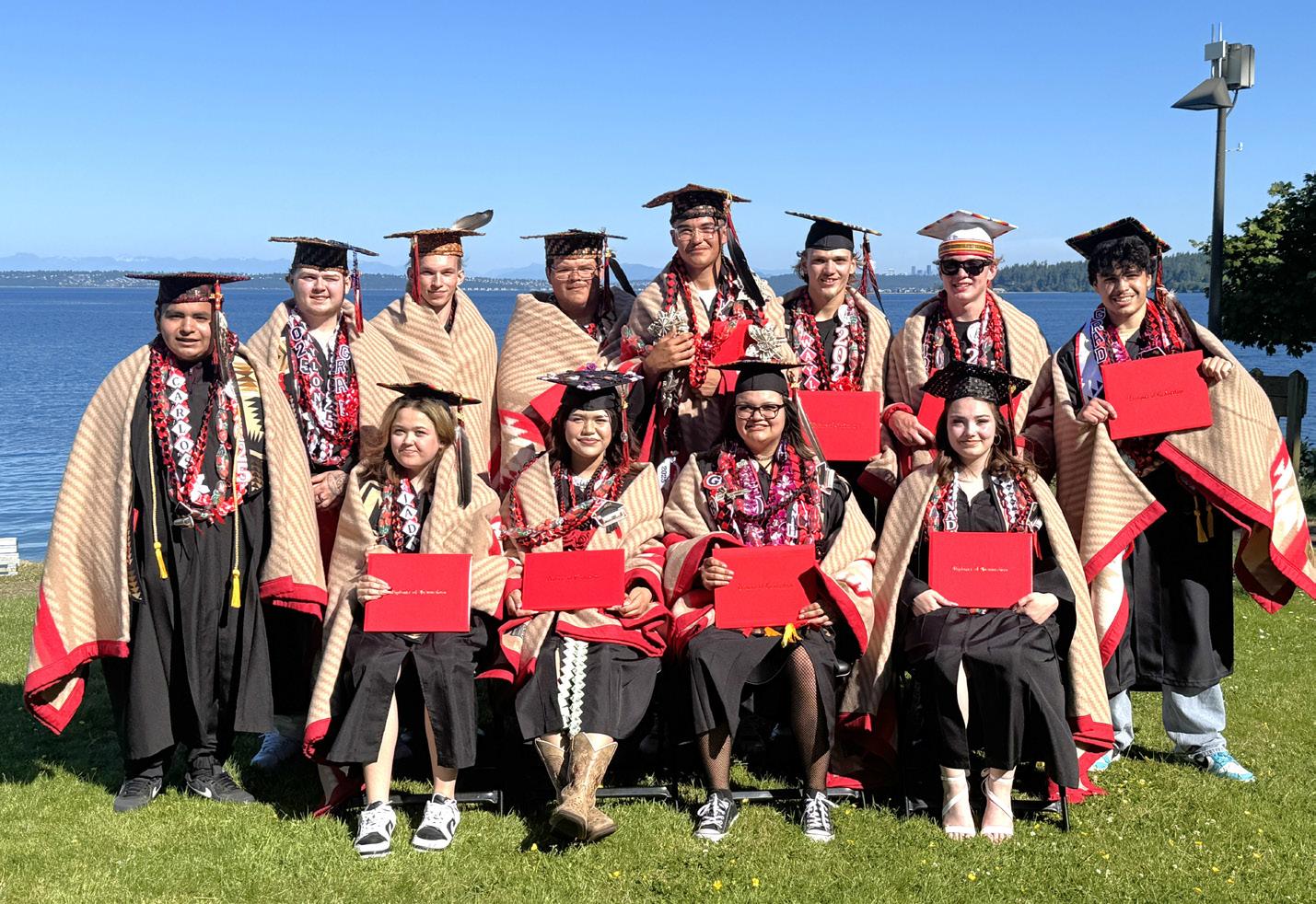
Congratulations Graduates! See the grad round-up in next month’s Suquamish News!
Published monthly by the Suquamish Tribe: 18490 Suquamish Way, Suquamish, WA 98392
Email us at: communications@suquamish.nsn.us
Send letters to: Suquamish News Editor, PO Box 498, Suquamish, WA 98392-0498
Letters should include the writer’s full name, address, and telephone number and may be edited for clarity and space.
All photo submissions must be made in JPG or PDF form, with resolution of 300 dpi or more.
Leonard Forsman Chairman
Josh Bagley Vice-Chair
Irene Carper Secretary
Andrew George Treasurer
Lorilee Morsette Member
Azure Boure Member
Luther Mills, Jr. Member
Suq uamish Museum
July Museum Events
July - Sept. Heritage Bus Tour Fridays 11am-4pm.
July 2 & 3 Celebrate Independence DayComplimentary Necklace Making
July 4 CLOSED
July 9-20 Summer Glass Float Find
July 11 FREE Museum Admission More info: SuquamishMuseum.org
On the Cover
There are a lot of new faces at the Suquamish Police Department. The Marine Division’s new Harvest Monitoring Team is a big part of a reorganization designed to put more focus on supporting tribal fishers. Our coverage on all the changes at the SPD starts on page 9. (Photo by Jon Anderson)
Leonard Forsman Editor-in-Chief
Catherine Edwards Executive Editor
Erin Bischoff Communications Mgr
Jon Anderson Managing Editor
JoAnn Joe Photography/Design
Georgia Browne Layout and Design
Editorial Policy
Publishers of the Suquamish News reserve the right to refuse publication of letters to the editor and guest editorials. Submission of editorials and letters is encouraged. However, they represent the opinion of the author and not necessarily that of the Suquamish Tribe. As such, we reserve the right to refuse to print any letter, for any reason.
Reproduction of Suquamish News, in whole or in part, without written permission from the Suquamish Tribe is strictly prohibited.
BarbaraLawrence had already priced them out.
After years of using a patchwork of noisy space heaters in winter and a single window AC unit in summer, she was ready to invest in ductless heat pumps — the highly efficient, super-quiet systems that can cool and heat a home while using far less energy than traditional options.
But the cost, she said, was simply out of reach.
“I even had someone come to the house and give me an estimate,” Lawrence recalled. “It was going to be about $8,000. That just wasn’t something I could afford.”
Thanks to a new initiative from the Suquamish Tribe’s Climate Resiliency team, however, Lawrence’s dream recently became a reality. Her home on the Port Madison Indian Reservation now has two ductless units — one in the main living space, the other in the bedroom — providing year-round comfort with minimal fuss and no monthly propane refills.
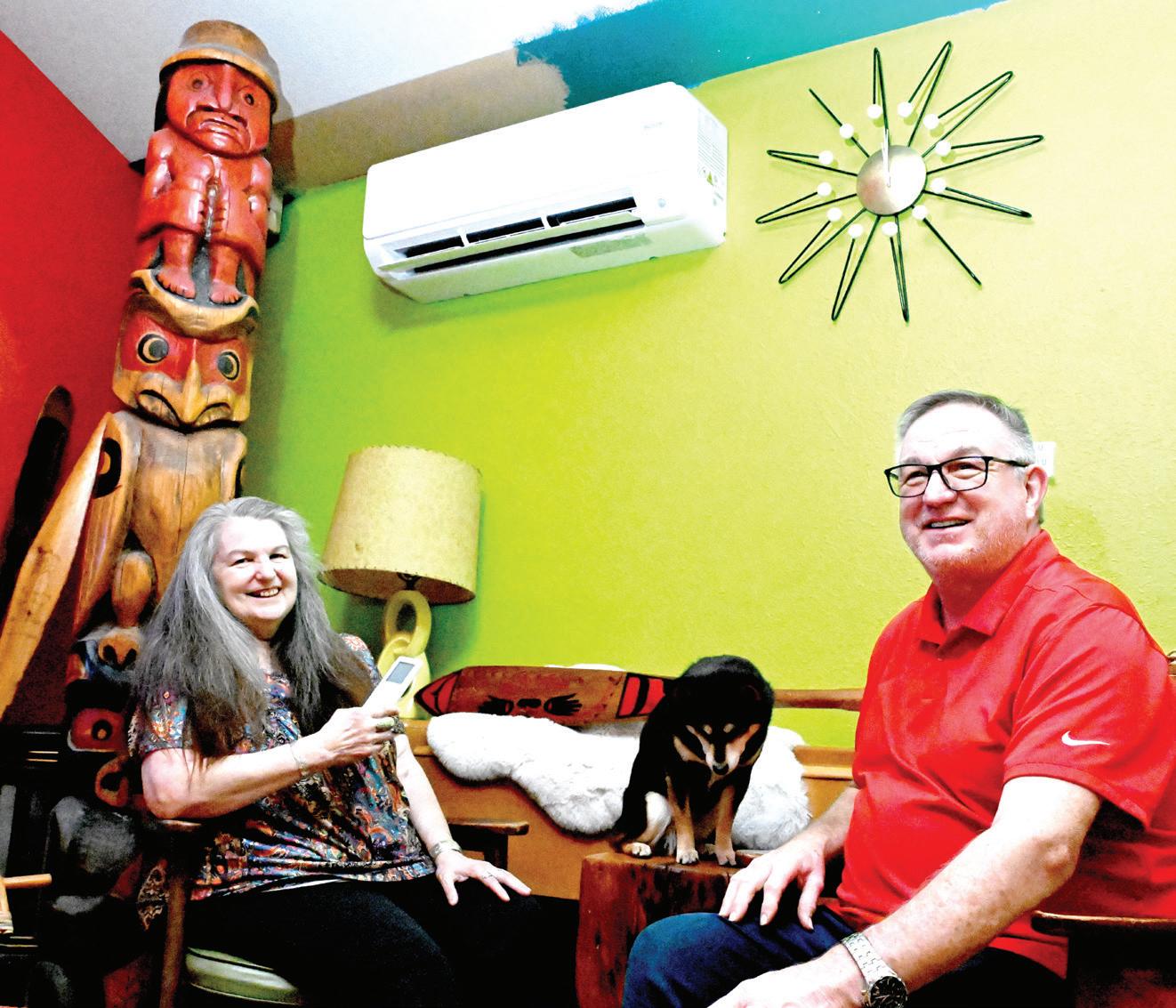
Barbara
“It’s steady, quiet, easy to use, and it just works,” she said. “And the best part? It was completely free through this program.”
The tribe’s ductless heat pump initiative launched last year with the help of Washington state green energy funding and the goal of reducing greenhouse gas emissions while improving energy efficiency for Suquamish tribal members. Focusing on Elders first, so far ductless heat pumps have been installed into some 60 tribal member homes since last April.
Now, the Climate team has secured additional funding resources — with more in the works — to provide more heating and cooling systems to tribal member homes over the next two years.
“It’s been incredibly rewarding to see the progress we’ve made so far, not just in terms of
the installations and outreach, but in how the community is embracing these solutions,” said Climate Resiliency Program Manager Hannah Ljunggren. “We’re building real momentum, and I’m excited for what’s ahead. There’s still so much important work to do, and we’re just getting started.”
Also known as “mini splits”, the units provide both heating and cooling through high-efficiency inverter technology while using a fraction of the electricity that traditional baseboard, cadet heaters, and AC units require.
Many installations have been completed in a single day by crews that include tribal members gaining experience in green energy careers.
Lawrence said her crew included Yay-WillAh Ives, a tribal member who has been apprenticing with the contractor responsible for the initial installations. “That made me happy,” she said. “It’s tribal members gaining skills and working in green energy. I love that.”
Just down the road, Barbara’s brother Wil-
liam Lawrence was one of the first Tribal Elders to receive a heat pump unit as part of the initial rollout.
“I didn’t know what it was at first,” he said, laughing. “The name made it sound like something from the 1800s — like a coal stove or swamp cooler. But I signed up anyway, and I’m really glad I did.”
With a 45-year-old home, one of the oldest in tribal housing, Lawrence said he was all too happy to get rid of his clanky old cadet heaters after the new system went in.
“It heats our kitchen, dining room, and living room, no problem,” he said. “And now it’s been doing a great job cooling things down as the weather heats up. And it’s whisper quiet. Those old cadet heaters used to kick on in the middle of the night — scared you half to death. Not anymore.”
Like his sister, Lawrence had two indoor units installed, one in the main area and one in the bedroom. The remote control was a bit confusing at first — “I had to get a tutor,” he joked — but once set, it’s been smooth sailing.
“I’d highly recommend it to anyone who might be on the fence,” he said. “It’s easy, it works, and it’ll lower your bills. What’s not to like?”
Eligibility and application details for the next round of installations are expected in the coming months.
Suquamish tribal member homeowners on the Port Madison Reservation interested in getting a ductless heat pump can let the Climate team know and learn more about the program at bit.ly/SuquamishClimateResiliency.
Or call the the Suquamish Climate Resiliency Program at (360) 394-1402.
By Jon Anderson Suquamish News Staff Writer
s ummer F u N
The Education Division will be hosting an Enrichment Camp for Summer 2025! This fun and engaging camp will take place three days a week — Tuesdays, Wednesdays, and Thursdays — for two weeks, starting July 15 and wrapping up July 24.
This opportunity is open to Suquamish tribal members and household students who will be entering grades Kindergarten - 6th in the fall. So, whether your student is just starting their academic journey or heading into middle school, they are welcome to join in on the experience!
Camp activities will include exciting options such as:
• Marine life and tide pool exploration
• Beach tide adventures
• Archery
• Sports and recreational games
• Field trips
• And so much more!
Paddle to Lower Elwha
Suquamish will host visiting canoes Sunday, July 27. Canoes depart from Suquamish the next day to begin the three-day pull to Lower Elwha for the landing on July 30. Protocol runs Aug 1-5.
Here’s how to get involved:
Canoe Practice Is On
Whether you’re an experienced puller or just curious, tribal youth and household members are welcome to join canoe practice. Sundays & Wednesdays — watch the Youth Canoe Facebook and Weekly Update for details.
Join the Journey
Want to pull, help at camp or support crew? Volunteers are always needed. Song & Dance participants also welcome for protocol.
In addition to all the hands-on activities, students will also have time for academic support, including reading sessions and engaging worksheets to help keep their minds sharp over the summer.
Our goal is to make learning fun while supporting students’ continued growth in a relaxed and encouraging environment.
If you’d like to sign your student up, or if you have any questions or concerns, please don’t hesitate to contact Suquamish Elementary Academic Coaches:
Chris Miller chrismiller@suquamish.nsn.us / (360) 900-6330
Napua Korsak nkorsak@suquamish.nsn.us / (360) 710-0631
Registration deadline extended! Please register your child no later than July 7.

July
3 Burke Museum Trip
8-10 Culture Camp, 9am – 3:30pm
16 Ice Skating 2pm Bremerton
18 Open Swim B.I. Pool 1-3pm
August
8 Culture Hour
11 & 13 Wild Waves
18 Closed
21 Back-to-School BBQ - Youth Council Elections
22 High Trek Adventures in Everett
26 Mariners Native American Night in Seattle


a
WhenGenevieve Edwards-Boure first tried out for Chief Seattle Days Royalty Court at last year’s annual celebration of Suquamish Tribe’s ancestral leader, she was so nervous she could barely speak above a whisper. Just nine years old at the time, she was excited, but shy, and unsure if she was ready for the spotlight.
Now, nearly a year later, she’s stood up and spoken at protocol during Canoe Journey, represented the Suquamish Tribe at dozens of community events, and traveled as far as Neah Bay as part of her duties.
“It’s fun because you get to meet new people,” she said. “And I like to represent a lot.”
The transformation didn’t happen all at once. Early on, Genevieve had to push through nerves—especially when speaking in front of large crowds at places like Muckleshoot.
“It gets scarier once there’s a lot more people,” she said. “You have to talk louder — loud and proud.”
That phrase — “loud and proud” — is one of her dad’s mantras, and it’s stuck with her.
“I think about that when I’m up there,” she said with a smile.
Her father, Ryan Boure, said he’s seen Genevieve grow in ways that go beyond speaking. “She’s really easygoing, and she wants to learn, represent, and be the best she can be,” he said. “It’s not something you can push a kid into. They’ve got to want it.”
Genevieve did want it—and her year as Junior Royalty has been packed with learning, travel, and stepping into new roles. She gave her first official protocol speech just days after being crowned at Chief Seattle Days last summer, and from there began a busy year of appearances.
“She’s probably been to a couple dozen events,” Boure said. “It’s like a sport—but one that lasts all year.”
For families thinking about encouraging their child to try out, Boure offered simple advice.
“Trust your kids. Trust their feelings, their thoughts. Support them, but don’t force it.”
Genevieve’s advice to other youth thinking about stepping into a royalty role is just as heartfelt.
“Don’t do it just for yourself,” she said. “Do it for the people you can help.” She said she’s learned how to support her community by showing up, being visible, and speaking from the heart.
Chief Seattle Days Royalty isn’t just about wearing a sash and crown. It’s about leadership — both learned and lived.
Throughout the year, royalty represent the Suquamish Tribe at cultural events and community gatherings, often serving as the first youth ambassadors visitors meet.
“It’s really about growing leaders,” said organizer Kali Chargualaf. “They’re not just representing Suquamish — they’re connecting with other tribes, building relationships, and becoming role models for their peers.”
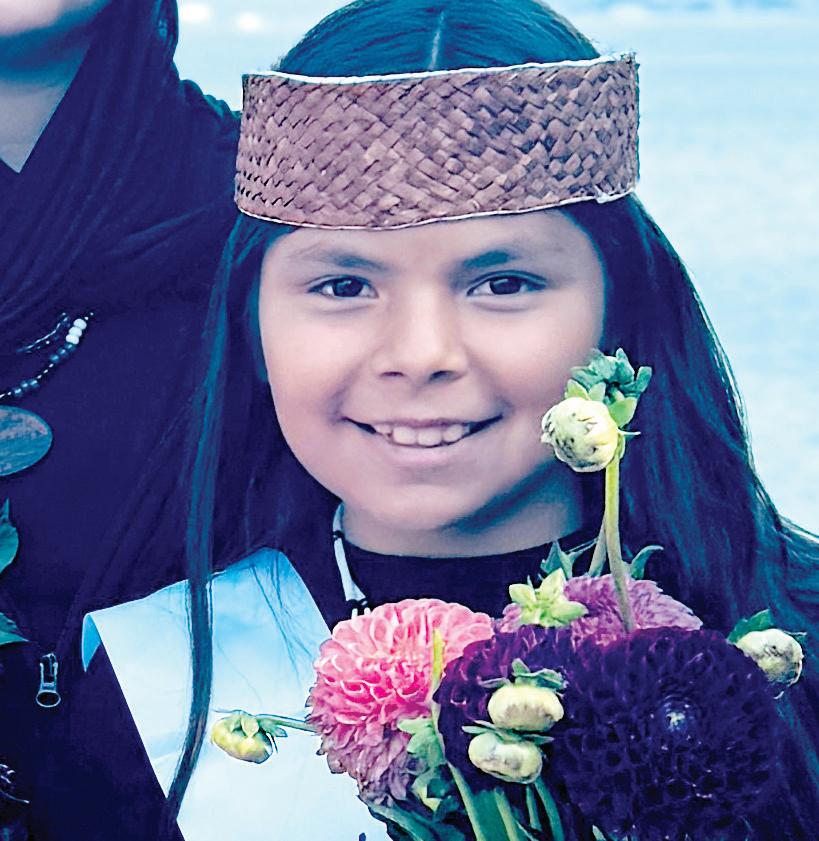
Chargualaf said she’s witnessed remarkable growth among youth who take on these roles.
“Confidence doesn’t have to come first—it comes from doing,” she said. “You can start out shy and end up strong.”
Royalty also build close relationships with tribal leadership, Elders, and cultural educators. Many go on to join the Suquamish Youth Council or become involved in other forms of leadership and service.
“There’s a real transformation that happens over the year,” Chargualaf said. “They learn how to speak publicly, how to introduce themselves traditionally, how to use Lushootseed in their greetings — and they take pride in it.”
For Genevieve, the journey isn’t over. She plans to run again this year, hoping to earn another term as Junior Royalty. “I just want to keep doing it,” she said.
Her summer is already filling up with plans for Canoe Journey and another Chief Seattle Days — now with the poise and experience of someone who knows what to expect.
Applications for the 2025 Chief Seattle Days Royalty Court are now open to Suquamish tribal members and descendants. Youth interested in applying can contact the Chief Seattle Days committee or visit the Suquamish Tribe website for more information. Tryouts will be held on the Aug. 15, the first day of this year’s Chief Seattle Days celebration.
“It’s a chance to represent your community, grow your voice, and meet new people,” Genevieve said. “It’s scary at first—but it gets better every time.”
By Jon Anderson Suquamish News Staff Writer
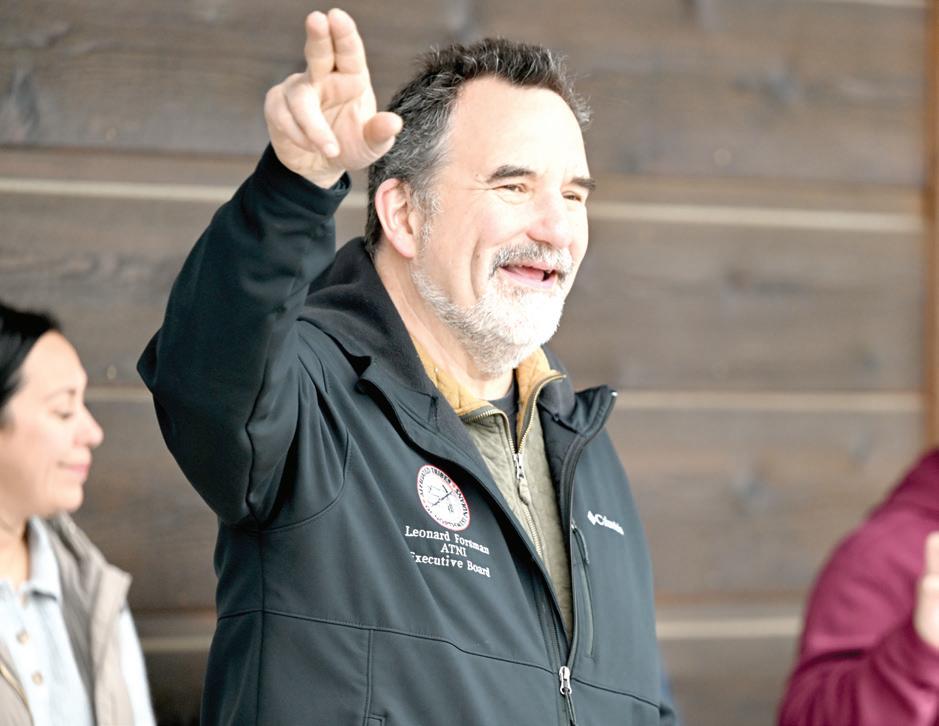
The Suquamish Tribe Fisheries Department has received ancestral remains from private individuals and universities over the past two years. The Traditional Heritage Program organized a reburial ceremony in the Suquamish Tribal Cemetery with the support of the Maintenance Department, Human Services, Suquamish Warriors, Tribal Elders, the Purser Family, and others in the tribal community. Thank you to all that supported this important work.
The Cultural Resources Department hosted the Culture Committee’s monthly meeting to review project proposals, provide updates on upcoming events, and seek guidance from committee members on their work plan.
The committee reviewed interpretive panel text and images for the Quincy Square project in downtown Bremerton. They also reviewed the Education Division’s draft of an 8th grade geography curriculum unit on Suquamish land history. Cultural Resources also held a planning workshop for the 2029 Suquamish Tribal Journey Hosting. A draft schedule and protocol plan were developed during the meeting. These plans will be conceptualized and presented to the Culture Committee for review and feedback in the future.
The end of school coincided with several educational meetings and events that needed tribal participation and support. The College Board’s Native American Student Advocacy Institute (NASAI) held their annual conference in Seattle and
asked for a traditional welcome to Seattle from the Suquamish Tribe. The NASAI conference assembles tribal education leaders to address education challenges facing Native students by building national networks dedicated to improving outcomes for these learners.
Washington State Board of Education (SBE) representatives visited Suquamish to learn more about our tribal education program. The SBE is dedicated to shaping and advocating policies that support equitable and inclusive K-12 education. Best known for its role in establishing credit and non-credit requirements for high school graduation, the SBE provides a variety of support services for schools. They do not have authority over State Tribal Education Compact (STEC) schools like our Chief Kitsap Academy but are seeking ways to support tribal education systems.
Washington State University hosted a meeting for STEC school leadership to share their successes, challenges, and opportunities among themselves to identify how the schools can improve and share best practices. This was a great way to hear what other STEC institutions are doing to improve tribal student success.
The Pacific Education Institute held a teachers’ workshop on Climate Change in Indian Country at the Clearwater Casino & Resort. Educators from local counties came to learn more about tribal culture, history, and perspective on protecting our natural resources from pollution and the impacts of a warming climate.
Central Kitsap School District (CKSD) staff visited the tribal government offices to consult with the Suquamish Tribe on their efforts to improve outcomes for tribal students in the district. CKSD demonstrated a strong commitment to serving their Native students through cultural events, introducing tribal curriculum, and recognition of tribal students through their Indian Education Department.
Salmon Homecoming planning is underway. This important educational event, held each year in Seattle, will be Sept. 19 & 20 on the waterfront.
The University of Washington Board of Regents held their monthly meeting on the Seattle campus last month just before commencement weekend. The university is facing financial challenges to due to cuts and delays in federal funding for research.
The state budget deficit is also a challenge. Staff are working hard to minimize impacts to employees and important institutional missions.
The federal government’s efforts to cut programs through DOGE and some of the President’s Executive Orders are having a negative impact on Indian Country. The ability for the United States to maintain its trust and treaty responsibility is being compromised. While some programs, especially with the Indian Health Service, have been protected, many others are endangered.
We are working hard to inform Congress, the White House, and various agencies about the harm these actions are having on Indian Country.
I testified before a Bureau of Indian Affairs (BIA) consultation hearing to bring this message directly to federal officials in attendance. I emphasized the need to retain essential BIA employees, continue support of public safety, and to protect our natural resources.
This advocacy flowed into the National Congress of American Indians (NCAI) Mid-Year Conference, held at the Foxwoods Casino in Ledyard, Connecticut hosted by Mashantucket Pequot Tribal Nation. Scott Davis (Standing Rock Sioux), acting Assistant Secretary for Indian Affairs, addressed the NCAI convention and demonstrated his support for the tribes. Tribal leaders asked him to advocate strongly for tribal funding when talking to the White House officials.
Tribal leaders at NCAI also learned of the threat of unregulated gaming being offered by companies under the Commodity Futures and Exchange Commission. The Indian Gaming Association urged tribal leaders to join in lawsuits against these companies that seek to avoid regulations that tribes and other gaming operators are required to follow.
The Washington Indian Gaming Association held their monthly meeting at their trade show at the Cowlitz Tribe’s Ilani Casino & Resort. The same reporting on the unregulated sports betting was shared here as well, along with other legal and policy updates.
Efforts to advocate for environmental protection continue. The Puget Sound Regional Council held a meeting to hear more about how tribes are implementing climate change strategies. Our climate team discussed our plan and our recent projects,
including our heat pump program and electrical vehicle charging systems.
The National Oceanic and Atmospheric Administration (NOAA) hosted a meeting at the Ballard Locks with Assistant Administrator for NOAA Fisheries Eugenio Pineiro Soler to discuss salmon recovery with representatives from the Suquamish and Muckleshoot tribes. We discussed the need for addressing sea lion and other pinnipeds predation on salmon stocks, especially in the Lake Washington Ship Canal, and also the need for continued funding for salmon hatcheries.
Washington State Lands Commissioner Dave Upthegrove held his first Department of Natural Resources Tribal Summit hosted by the Squaxin Island Tribe. Tribal leaders testified to the continued threats to their treaty and natural resources, especially salmon and shellfish. Others testified to the threats to hunting and gathering areas posed by wildfires and overuse by recreational visitors to public lands.
Welcoming and honoring
I was honored to welcome several organizations holding events here on our reservation. The Great Peninsula Conservancy (GPC) once again held their annual fundraiser at Kiana Lodge. I told them of our history with Kiana Lodge, including our acquisition of the property in 2003. The event was very successful and I would like to thank Azure Boure for serving on the GPC Board and representing the tribe in helping them preserve open space for future generations.
The Washington State Harm Reduction Conference held their annual meeting at the Suquamish Clearwater Casino Resort. I provided a welcome to the group as they gathered to seek innovative ways to treat substance use disorders.
The Suquamish Tribe helped honor John Sledd — a treaty rights advocate and former Suquamish Tribal Attorney — in a well-attended gathering at our resort. John has worked hard for tribes in protecting our fishing rights, especially in the culverts case. Thanks to the Maintenance Department for hosting a barbecue for staff. This is part of tribal government’s Thriving Workplace initiative and was a great team building exercise for our workforce.
By Leonard Forsman, Suquamish Tribe Chairman
Member Lorilee Morsette accepted a national leadership award in Las Vegas on June 25, recognizing not only for her accomplishments across Indian Country — but for the values she carries with her wherever she goes.
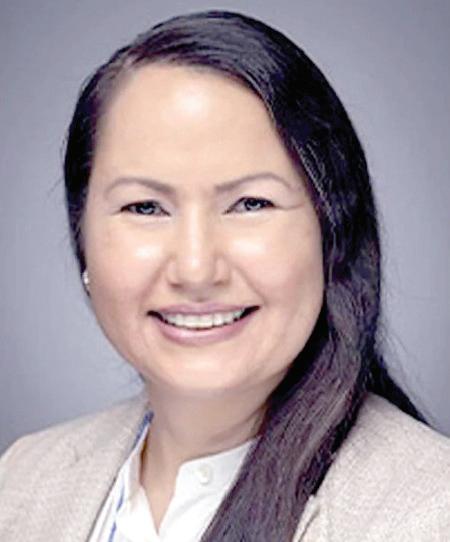
Morsette received the Native Leadership Award from the Tribal Leadership Council, which honors change makers who are shaping a stronger future for Native nations. She accepted the award alongside fellow honorees Dr. Crystal Miller, an entrepreneur and youth advocate from the Walker River Paiute Tribe, and Rodney Youckton, a respected Elder from the Confederated Tribes of the Chehalis Reservation.
Though she has been recognized nationally for her work, Morsette said the honor only deepened her commitment to her own community.
“Whatever I do for others, I know I’m doing for my tribe,” she said, during a short break while volunteering at the Suquamish Tribe’s recent End of School Bash for tribal youth. “And whatever I learn out there, I bring it back here.”
Morsette’s path has been anything but conventional. Before being elected to the Suquamish Tribal Council, she was an executive at Mutual of America Financial Group in New York City, where she served as an officer, Vice President of National Accounts, and Director of Tribal Markets. Her work focused on helping tribal nations across the country better understand capital management, retirement planning, and the long-term financial tools necessary for sovereign growth.
During her time in New York, she helped organize a national tribal HR summit that brought more than 175 tribes together — many of them visiting Manhattan for the first time. “I just wanted to share that moment with our people,” she said. “To show them that we belong in these rooms too.”
That experience, and the encouragement she received from other Native leaders, led her to run for Council. “It was like a wildfire from there,” she recalled. “I knew I was on the right
path, even if it wasn’t easy.”
The award ceremony, held during the Tribal Leadership Council’s annual conference, brought things full circle. She shared a stage with Miller, whom she met years earlier in North Dakota, and Youckton, a Tribal Elder who once approached her after a 90-minute financial presentation to say simply: “You did a good job.”
“I started crying,” she said. “He reminded me that I was doing something right, even when I wasn’t sure.”
Today, in addition to serving on Tribal Council, Morsette is also pursuing a doctorate in Leadership and Innovation at New York University, which she credits with keeping her “candle lit.” She’s also mentoring others, launching a consulting business, and considering law school as her next step — so she can better serve her tribe and help remove the barriers she’s seen Native communities face for generations.
“I’m not doing this for recognition. I’m doing this because it’s who I am,” she said. “I want our people to have access to knowledge, to opportunity, to self-determination.”
That spirit of service runs deep. When she’s not in meetings or classes, she’s often volunteering behind the scenes. “You don’t have to get paid or in a particular position to do this work,” she said. “One day I might not be on Council — but I’ll still be here, doing the same things you see me doing now.”
Indeed, she’s quick to downplay the spotlight. For Morsette, leadership isn’t about titles or awards. It’s about accountability, ethics, taking care of people, and doing the work, even when no one’s watching. That’s what she hopes younger tribal members see — not just in her and other tribal leaders, but in themselves.
“Yes, it’s hard,” she said. “You have to stand alone sometimes. But we need more of our people stepping into these roles. Not to fight, but to build. To grow. To lead with integrity.”
As she prepared to take the awards stage in Las Vegas, flanked by two people who had helped shaped her journey, Morsette reflected on the ties that bind Native leaders together — even across different regions and roles.
“There’s something unique about each of us,” she said. “But it’s that connection in between — the shared commitment — that makes the biggest impact.”
By Jon Anderson Suquamish News Staff Writer
OnMay 19 the Suquamish Tribe notched another win for tribal sovereignty.
That’s when the U.S. Supreme Court declined to hear a case challenging the jurisdiction of the Suquamish Tribal Courts.
With the denial, this challenge to Suquamish sovereignty finally ended and the tribe’s retained sovereign authority survives.
This case arose out of the COVID-19 pandemic. The tribe and Port Madison Enterprises made insurance claims for business losses caused by the COVID-19-related closures of their insured properties. The insurers denied the claims.
The tribe and PME sued the insurance companies in the Suquamish Tribal Court for breaching the terms of their insurance contracts.
The insurance companies then asked the court to dismiss the case claiming the Tribal Court lacked jurisdiction over the insurance companies.
They argued that because the insurance companies were not located on the Port Madison Reser-
vation, the Tribal Court did not have jurisdiction.
This is despite the fact that the insurance companies consensually entered into these insurance contracts with PME and the tribe, the property insurance insured tribal properties on the reservation, and the insurance polices were designed and marketed specifically to tribes under the name “Tribal First Insurance”.
The Tribal Court found jurisdiction. The Suquamish Court of Appeals agreed.
Unsatisfied, the insurance companies sued the tribe’s judges. The tribe intervened to defend the judges in federal court, arguing against the insurance companies’ request for an injunction to preventing the judges from continuing to exert jurisdiction.
On September 12, 2022, the federal trial court also denied the insurance companies’ claim that the Suquamish Tribal Courts did not have the power to hear the case.
The insurance companies appealed that decision
Ona sunny Saturday afternoon in June, a crowd packed into the Lynwood Theater on Bainbridge Island to attend an event organized by Standing Together Bainbridge Island.
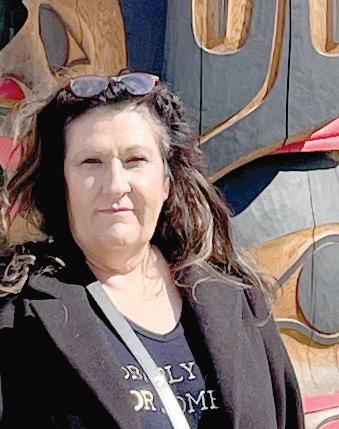
Suquamish Tribe Executive Director Catherine Edwards, along with Congresswoman Emily Randall and State Representative Greg Nance, were among the many presenters.
Edwards was asked to share how Executive Orders from the current presidential administration and other decisions from Washington, D.C. impact the tribe.
From changes to how federally funded grants are awarded, to how the Department of Government Efficiency plans to reduce staffing at the Bureau of Indian Affairs, to the financial hit the tariffs
caused the Suquamish Seafoods’ geoduck market, Edwards described the uncertainty “like whiplash and it takes a huge toll on tribal communities.”
Standing Together Bainbridge Island is a grassroots organization whose goals are to:
• Educate our community about threats to our democracy
• Activate our community to resist anti-democratic threats
• Make our community stronger by supporting our vulnerable communities
• Enhance our understanding of the breadth of our community
• Face our historical harms so we can have a sustainable future
More information can be found at standingtogetherbi.org
By Erin Bischoff Suquamish News Staff Writer
to the 9th Circuit Court of Appeals. In February 2024, the 9th Circuit agreed with all of the other courts that the Suquamish Tribal Court has jurisdiction.
The insurance companies kept pushing the case, asking the Supreme Court to hear it this year.
The Supreme Court declined, preserving Suquamish jurisdiction over the case.
The case can now proceed in Tribal Court.



Inrecent years, the Suquamish Police Department’s Marine Division has often been little more than a name. On most days, it consisted of just one or two officers trying to cover thousands of square miles of ancestral waters.
Under a new tribal member-led program, however, all that’s changing.
At the request of tribal fishers and with the backing of Suquamish leadership, the Marine Division has reorganized and expanded creating a new team of harvest monitors that now provides daily presence at clam digs, geoduck harvests, and other fisheries.
“It creates more coverage for our fishers and for our resources,” said Capt. Ryan George, a Suquamish tribal member who leads the division. “And it frees up more of our commissioned officers to respond where they’re most needed.”
The new Harvest Monitor positions — filled exclusively by tribal members, descendants, or spouses — support both enforcement and education. While they don’t carry weapons or issue citations, they play a critical role in documenting violations, observing safe practices, and maintaining community relationships.
“Tribal members asked for this,” George said. “They wanted to see more of a presence out there — not just to enforce the rules but to support the work they’re doing.”
Under the tribe’s Shellfish Implementation Plan, some level of enforcement is required at all clam digs. But for years, SPD had to stretch limited staff to cover overlapping harvests and fisheries, sometimes miles apart.
“Having harvest monitors in place means we’re not pulling a patrol officer off the street every time there’s a dig or a geoduck dive,” said George. “It makes the whole system stronger.”
“Now I’ve Got a Team”
For longtime geoduck monitor Jerry Marquez, the expansion is a welcome.
“For so long, it was just me out there every day, rain or shine, said Marquez, who’s married to tribal member Janis Marquez. “Now, we finally have a real team.”
Marquez, who started working for the tribe in the casino in the late ’90s, became the depart-

ment’s only geoduck monitor more than a decade ago. Since then, he’s logged thousands of hours on the water, supporting divers, monitoring harvests, and serving as a crucial safety contact.
“When a dive accident happens, it’s good to have an extra set of hands that knows what to do and can help quickly get them to medical treatment,” he said. “Now we have more people trained, and more presence to support the divers.”
With additional harvest monitors now on board, Marquez is also getting more time on the beaches to support clam digs — and a bit more balance in his life.
“People are seeing us more often, and that matters,” he said. “It’s not just enforcement — it’s community visibility. That’s what this is about.”
Among the new team members is Ryan Sigo, a Suquamish tribal member who grew up fishing
alongside his grandfather David Sigo, a respected local fisherman and buyer.
“My grandpa told me I couldn’t help until I could lift one of our 80-pound crab pots,” Sigo said. “I kept trying until I finally could. That’s when I knew I belonged on the boat.”
By the time he was in high school, Sigo was helping with everything from setting gear to selling to buyers. After working in a variety of tribal public safety roles — including Tribal Court bailiff — he now serves as a harvest monitor.
“This work feels natural to me,” he said. “I grew up doing it. Supporting our fishers, protecting our treaty rights — that’s what I want to be part of.”
Ray Johnson, who also joined the Marine Division in recent weeks, isn’t a tribal member himself, but his wife, Samantha, and their four children
If you haven’t checked out the Suquamish Police Department’s Facebook page lately, do yourself a favor and scroll through. From fishing season safety tips to updates on police activity, Chief Mark Williams has been using the platform to speak directly to the community — with straight talk, a sense of humor, and a welcome dose of transparency.
It’s part of a broader shift in how the department is operating under new marching orders from Tribal Council.
Williams took over as chief a little over a year ago. A U.S. Army and Coast Guard veteran, he served in a variety of service and maritime roles, including more than a year stationed in Antarctica. In 1999 he joined the Suquamish Police Department, where he rose through the ranks from volunteer to officer to detective and then deputy chief before assuming the top job last year.
That’s when Williams, at the urging of Tribal Council, made it a priority to improve communication and community engagement.
“People want to know what’s happening — and they deserve to know,” Williams said. “We’re not just here to enforce the law. We’re here to build trust, listen, and work with the community.”
His posts are written in his own voice — mixing updates, commentary, and personal reflection.
“I’m not trying to be flashy,” he said. “We’re trying to be clear and honest.”
Just take one of his most recent Facebook posts, a video that he felt was important enough to take a moment during his day off while hiking on Mt. Rainier, to directly address a vandalism incident on sacred tribal property.
“We had an egregious act of vandalism against the Suquamish Tribe and Suquamish people at Doe-kag-wats and we are taking this very seriously,” he said, announcing a $750 reward for information leading to an arrest. “Or $1500 if you can give me video or photographs of that act occurring.”
That same commitment to openness is behind the department’s new tradition of hosting open houses in tandem with police station events like BBQs and pancake breakfasts. These gatherings invite tribal members and local residents to share a meal, and come inside to learn more about how the department operates.
“At one of the first open houses, someone told me they’d lived here their whole life and had never been past the front lobby,” Williams said. “That
How tribal officers are creating a new era of
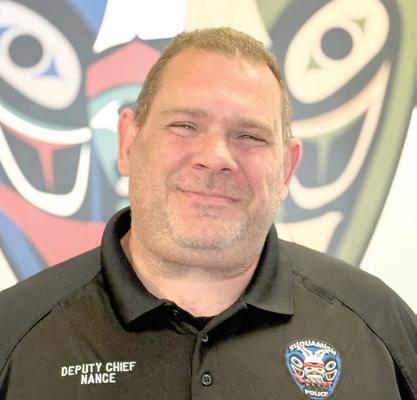

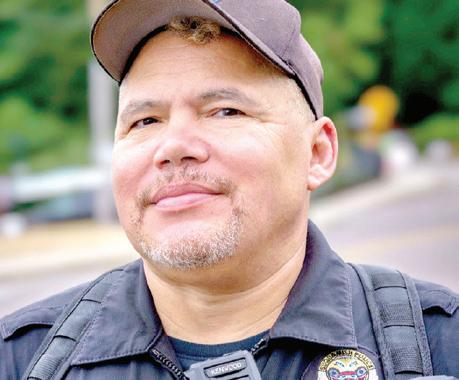
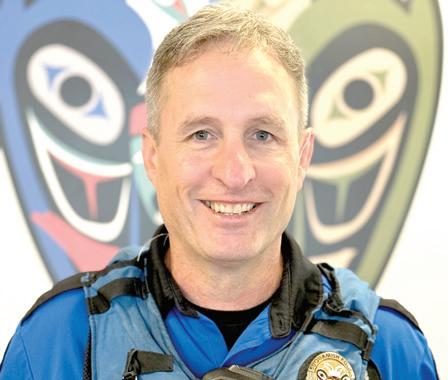
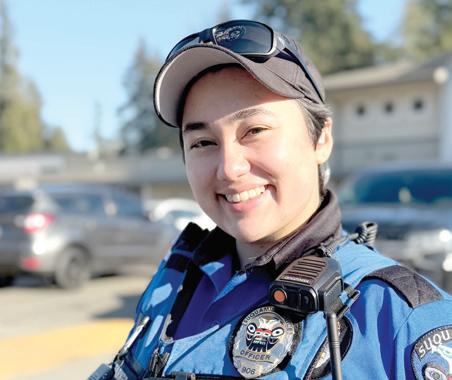
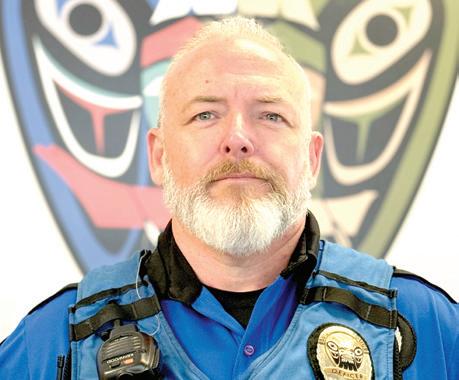
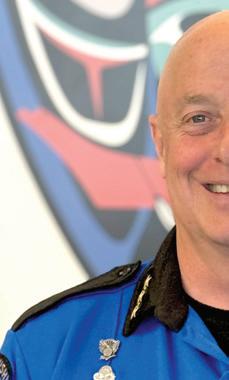
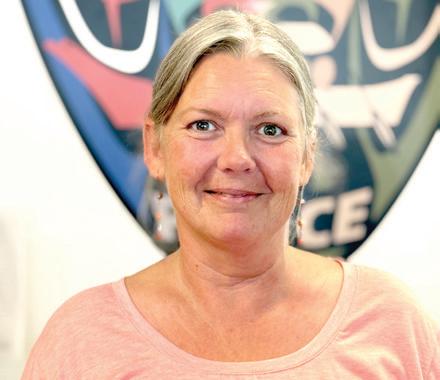

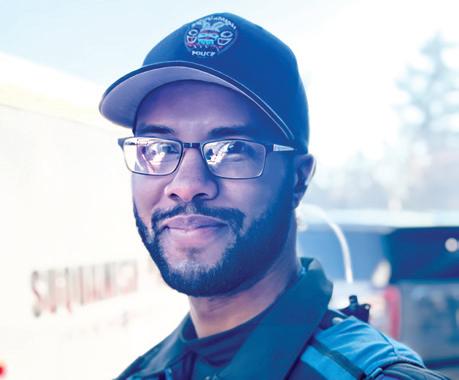
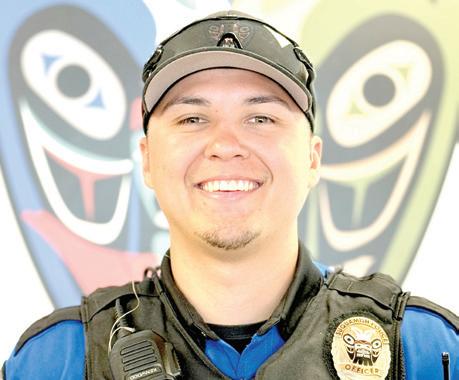
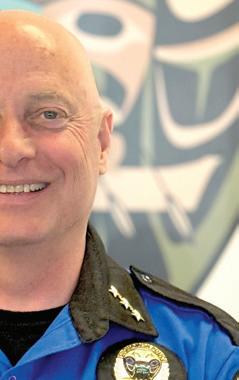

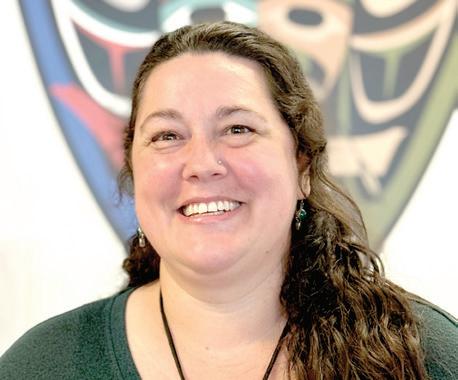
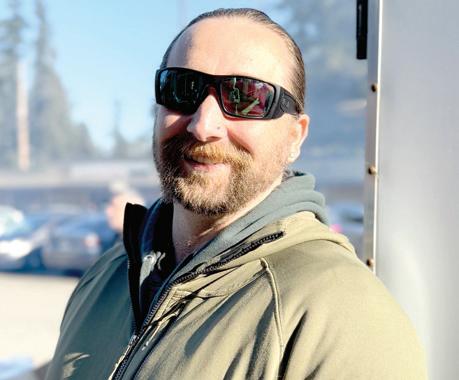
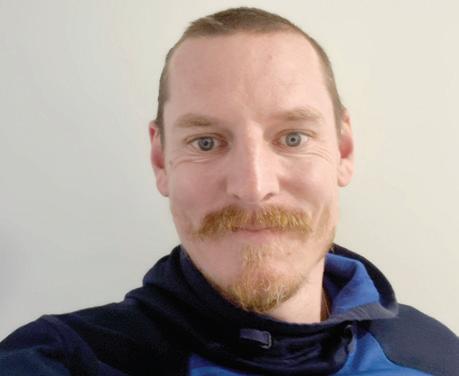
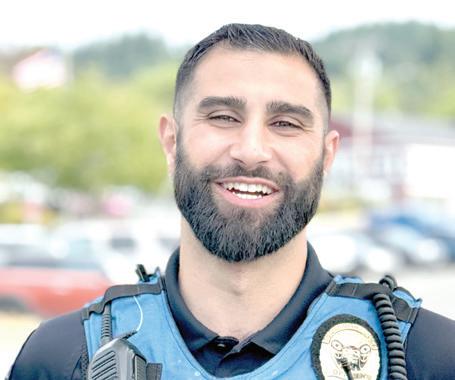
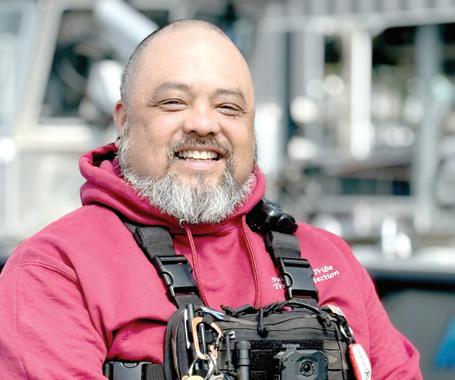
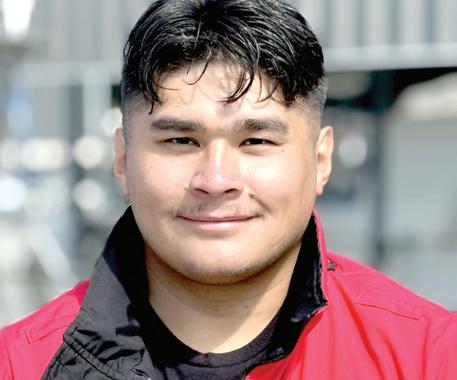



really stuck with me. We want people to feel like they can walk in, ask questions, and be part of what we’re doing.”
Beyond community outreach, Williams has been working internally to strengthen team dynamics, improve recruitment and retention, and foster a sense of shared purpose. Staff say his leadership style is collaborative and open, with an emphasis on listening and continuous improvement.
“He actually wants to hear it,” said Elizabeth Townsend, a Marine Division Harvest Monitor and Suquamish tribal member. “If there’s something we need or just have questions, he actually wants to hear it.”
That willingness to listen has helped drive several structural changes. He reorganized the Marine Division to respond to fishers’ calls for more on-the-water presence, brought on new harvest monitors to expand coverage, and created clearer pathways for staff development and training. Where the department had previously relied on a handful of individuals to cover multiple roles, Williams has built a more resilient, team-centered model.
The department has also stepped up its presence at community events — from summer barbecues to Culture Night cookouts—inviting residents to meet officers, ask questions, and enjoy burgers or hot dogs off the grill. Some have even joked the SPD needs to be renamed the Suquamish Police Department & Grillmasters.
“It’s all about giving the community a chance to connect with our officers outside of emergencies,” Williams said.
The changes haven’t gone unnoticed. Tribal Council has praised the department’s increased visibility, and tribal members have commented on the more open, responsive tone.
But there’s still work to do, Williams said. Staffing remains a challenge, and the demands of fisheries enforcement, patrol coverage, and emergency response continue to stretch the small department thin. But he’s optimistic about the path ahead.
“This job is about service,” he said. “That’s what I try to bring to it every day — service to the tribe, to the people, and to the next generation of officers coming up.”
By Jon Anderson Suquamish News Staff Writer
Continued from p9
are. After more than a decade in Tribal Government’s Maintenance Dept., Johnson jumped at the opportunity to be part of something new and meaningful.
“I’ve always loved being out on the water,” he said. “This job lets me support my family, serve the community, and hopefully pass that connection down to my kids.”
Elizabeth Townsend is another new addition to the division. A Suquamish tribal member with deep roots in the region, Townsend deck-handed on her family’s boat as a child and later worked in natural resources for the Port Gamble S’Klallam Tribe.
“I’ve always wanted to know more about our people, our rights, and our waters,” she said. “This role is helping me reconnect with all of that.”
She’s currently pursuing a degree in Native environmental science and sees this work as both a stepping stone and a sacred responsibility.
“Poachers hurt everyone,” she said. “When someone takes from a closed area, it’s not just a rule that’s broken — it’s damage to our shared resources, our sustainability, and our future.”
Townsend said the most rewarding part so far is the human connection.
“This is a new position, so there are lots of questions — and we’re figuring it out together,” she said. “But the team has been incredible. We support each other, and we support the community. That makes all the difference.”
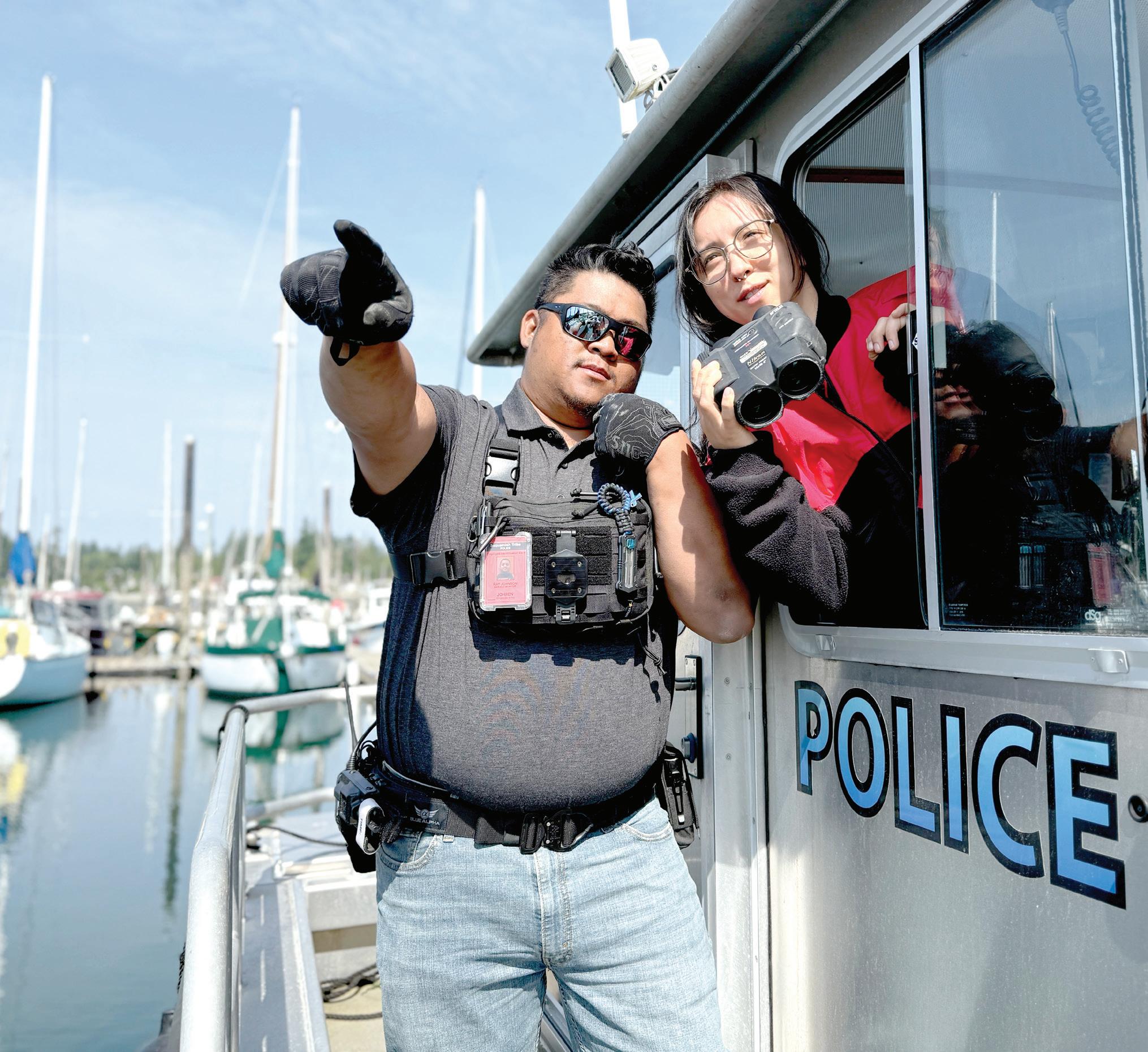
The division operates aboard two vessels: Marine 9, a 35-foot landing craft used for patrols, and a smaller boat used mostly during geoduck dives. A third vessel is hoped for in the future to expand coverage during busy fishing seasons.
“Our usual coverage area stretches from the north tip of Vashon Island up to the Canadian border and out into the Strait of Juan de Fuca,” George said. “It’s a huge area. Having these monitors in place helps us keep up.”
In addition to supporting geoduck dives and
clam digs, harvest monitors conduct beach patrols, serve as first responders, and help liaise with property owners who may be unfamiliar with treaty rights.
“A lot of it is education,” George said. “Sometimes people just don’t understand. But when we explain it — when they see we’re out here doing it right — it changes the conversation.”
And that, more than anything, is the goal.
“It’s all about visibility and protecting our tribal resources and our people.”
By Jon Anderson Suquamish News Staff Writer


Kitsap County is constructing a new stormwater treatment plant in downtown Suquamish. This new underground stormwater facility will be near the House of Awakened Culture and leads to a reconstructed outfall by the Suquamish Dock.
Here are important details to know: Construction Starts August 19, 2025, and will last until approximately March 20, 2026. Throughout the construction, the Suquamish Boat Ramp will be closed for all recreational and commercial activity. It will only be used in times of emergency by the Fire Department.
The dock will remain open to pedestrian and commercial access (Seafoods ATV equipment).
Access to the House of Awaken Culture will alternate between driveways throughout the project.
Traffic Controls will be in place for the duration of the project and will be one way on Parkway Blvd.
According to Kitsap County Public Works, when completed, the project will mitigate runoff from roads, parking lots and other impervious surfaces, which often contains pollutants which can enter local waterways. This project will utilize
a biofiltration system called a BioPod to help treat water before it enters Puget Sound. The BioPod is an underground system that has been approved by the Washington Department of Ecology as meeting its standards for enhanced treatment. Systems such as these are sustainable and environmentally friendly. They work by using filtration media to treat harmful stormwater pollutants such as solids, dissolved metals, and nutrients. Trash and debris are also collected in the BioPod, keeping our waterways cleaner and healthier for both humans and aquatic life.
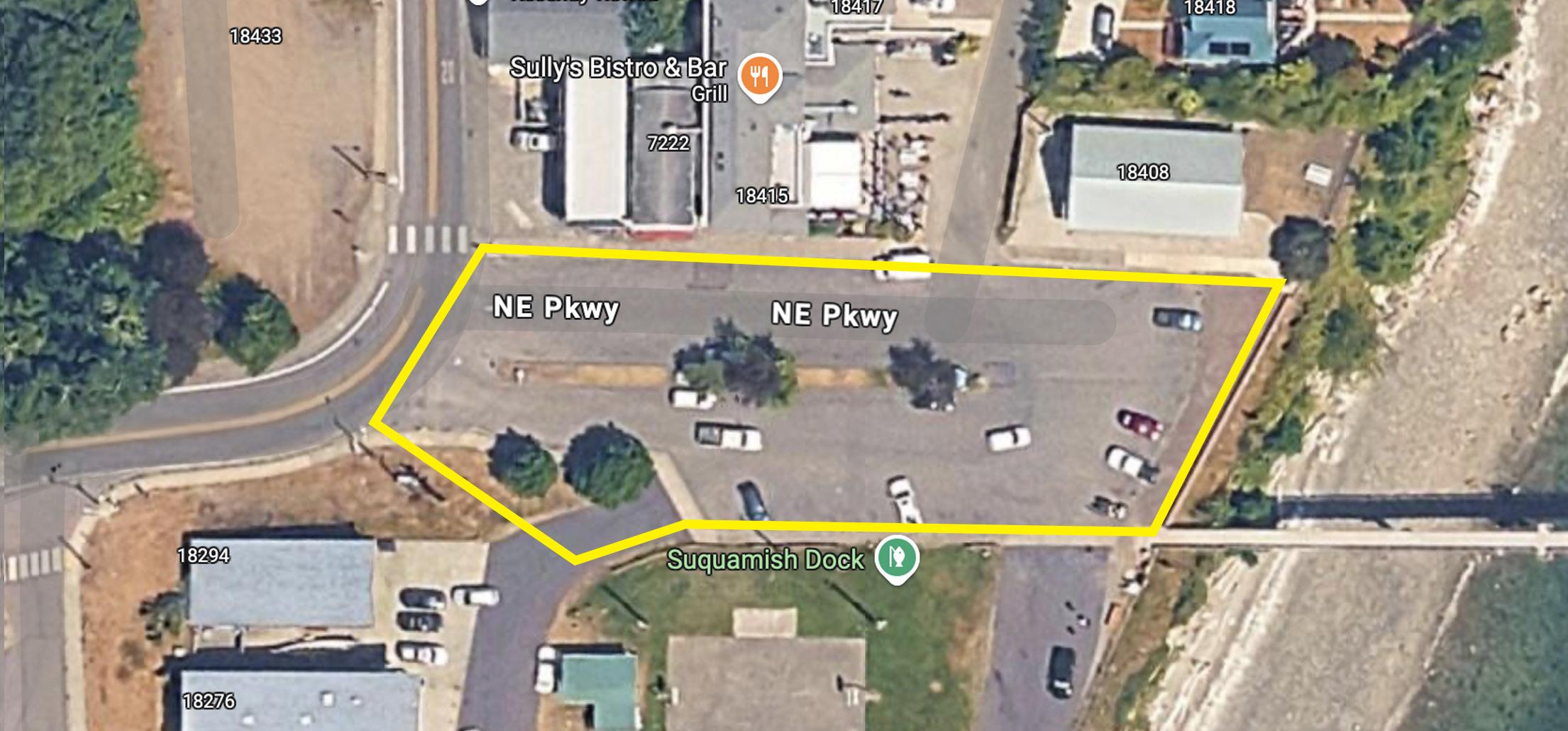
hard to believe the 2025 summer solstice has already come and gone — but what a season it’s been so far!
You may have seen Elder Chad Hawk around town lately, proudly operating his new toy: an excavator. Chad has been out and about, putting it to good use. Most recently, he donated his time to clean up the Elders woodpile across from the 76 Gas Station here in town. Our hand goes up to you, Chad — thank you for your hard work and kindness!
Many of our Tribal Elders have received new heat pumps, thanks to a grant awarded to the tribe. We’ve been hearing lots of positive feedback. One of our Elders, 90-year-old Ed Carriere, shared how much he loves his heat pump. With a big ole grin, he said it was wonderful to have a warm front room without having to start up the fireplace. That’s not just comfort — it’s progress. By replacing wood-burning stoves and fireplaces, we’re cutting back on smoke emissions and helping preserve our trees and environment. If you’re an Elder living on the rez and missed out on getting your heat pump, please reach out — we want to make sure you’re taken care of.
On June 14, about 15 of our Elders headed to Emerald Downs to enjoy the Indian Relay Races. What an exciting day! It’s always incredible to watch the Native riders leap on and off their horses with such speed and agility. There was even some betting going on! Elder Julie Haubrich was thrilled to think she’d won — until she found out her horse had been disqualified. In the end, we all came home empty-handed, except for our shuttle driver Danny, who won $67. At least someone won. If you’ve never experienced relay racing, we hope you’ll join us next year — it’s a thrill you won’t forget.
Our fishing trip to Port Townsend was a blast! It all started with loading up the Challacum and Carriere. When Bill Gemmell put out a call for help, one Suquamish veteran Luke, answered the call, along with three hard-working Suquamish tribal youth: DeShawn Santos, Joey Holmes Jr. and Jackson Holmes. These young men worked hard, helping carry everything down to the barge. We’re deeply thankful for their efforts and their respect in helping their elders. Their support made the trip possible, and we truly appreciate them.
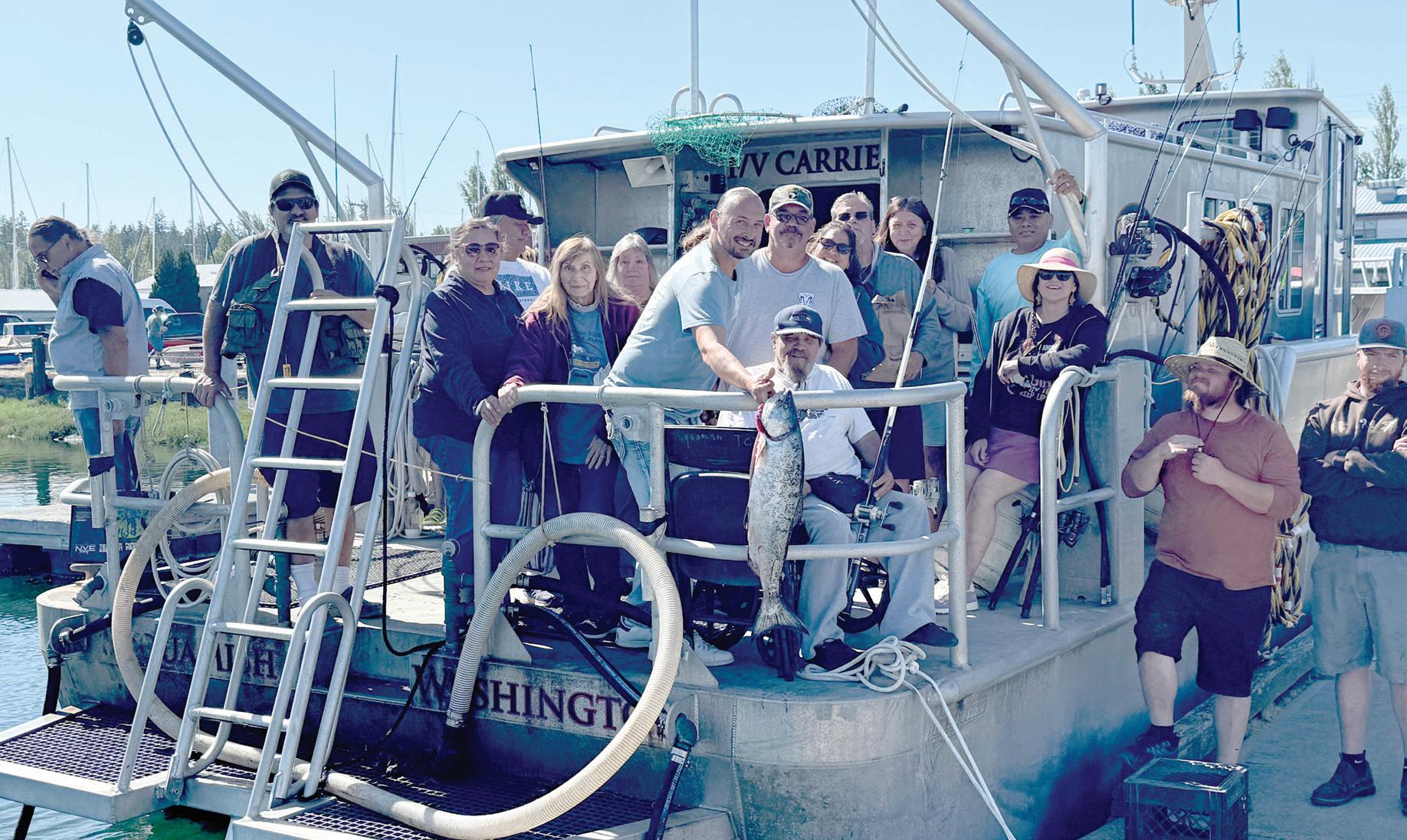
Melissa’s Report from the Carriere 88-year-old Elder Dickie Johnson pulled in a 13 pound salmon in the first hour, then got to relax for the rest of the trip. Dickie was the 3rd place winner. Melissa Lund kept pulling up lots of rocks, sea anemones, and kelp, but eventually hooked a big crab, boy was that a surprise to the other fishers (and the crab himself!).
We were excited to have Jeff Carriere on the boat named for him. He thoroughly enjoyed himself, and we loved socializing with him.
Jim Bob Armstrong had the big one that got away (we saw it with our own eyes!). Mitch Jerue, Bennie Armstrong’s guest from Alaska, reeled in two nice salmon, but was ribbed for coming down to Washington State and catching “our Suquamish fish.”
Della’s Report from the Challacum
What a day on the water! Jay Mills kicked things off by catching the first fish of the trip, weighing in at a solid 9 pounds, and was the first-place winner with a second fish weighing in at 15.5 pounds. Not long after, Ted Jackson reeled in a baby geoduck and two rockfish— proving he’s got a knack for variety.
One of the best moments of the trip came when Jay’s grandson, Ibrahim, who joined the crew to help the Elders, caught his first fish! With his cousin Baby Jay right by his side, Ibra-
him proudly landed a 13 pounder. You should have seen his grin — pure joy!
Dennis and Marsha Clark proved they’re quite the team out on the water. This dynamic duo both reeled in rockfish, showing everyone that fishing is even better when shared. It was great seeing them out there, side by side, making memories and catching dinner!
Gloria Santos landed a nice catch, weighing in at 7.3 pounds — ironically, the exact same as Della Crowell’s birth weight! That got a good laugh from the crew. Meanwhile, Janet Surratt gave us a show with a serious fight reeling in her fish. It wasn’t easy, but her determination paid off — it came in at a whopping 9 pounds!
Larry Sigo was our 2nd place winner who reeled in a fish weighing 13.5 pounds. His wife Carmen was so proud of her husband.
Our fishing trips take a lot of people to make happen. Our hands are up to our skippers who kept us safe, Chuck and Clae; Jay for ensuring all the fishing poles were ready, Bill for rounding up the Suquamish Veterans and to all the crew who helped our Elders and made this day successful. A special thanks to Antonia who helped us shop, and packed all the food and items for our trip.
A big thanks and lifting of hands go out to Linda O’Connor for braiding leis for the CKA graduates. She also made small graduate caps that attached to the leis. The Elders Council
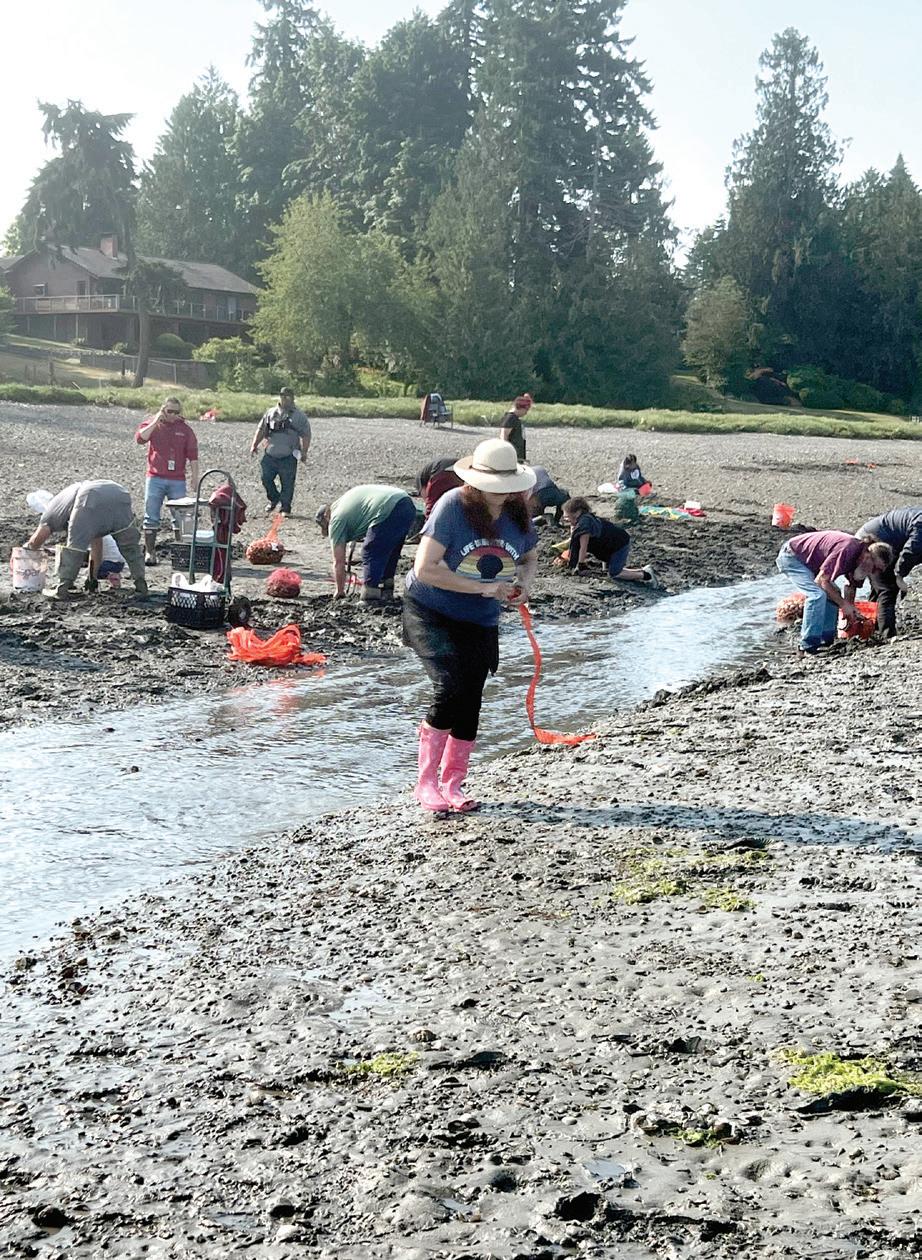
After a few delays, Tribal Elders — along with some helpers and staff from Suquamish Seafoods and the Fisheries Dept. — were able to get out the first Elders Dig of the season June 23. (Photo by Erin Bischoff)
attached money to the caps as a gift for the grads, and some council members attended the ceremony and honored the graduates with the beautiful leis. Linda learned how to make the leis at the Hazel Pete Weaving conference. What a great way for her to give back to others!
We send healing thoughts to Elders who are recovering in nursing homes, not feeling well, and prayers to those in need.
Remember gratitude and kindness to humans.
Happy trails to you, until we meet again!
By Della Crowell, Melissa Lund, and Antonia Ewing Elders Program
Happy July, second month of summer and good times for all! We have been very busy with things, last month, we reburied Ancestors and had a nice meal at the Beach Glass Cafe after.
I would like to thank the following people for their assistance and attendance: Gene Jones Jr., Jeff Snow, Leroy Green, Rob Purser Jr., Tyleeander Purser, Heather Purser, Gene Jones Sr., Bill Gemmell, Chuck Wagner and the Suquamish Color Guard, Katie Ahvakana, Toma Villa, Barb Santos, Elders Dickie Johnson and Donna Sigo, Chairman Leonard Forsman, Stephanie Trudel, and Marilyn Jones. All of your hard work and support and prayers for our Ancestors was greatly appreciated hands are raised to all of you!
I have the sweet grass permits if you wish to go please contact me and I will give you your copy. These permits are good until Sept. 15, 2025. I am very interested in interviewing folks on their stories, life in Suquamish, or where you grew up in Kitsap County or anywhere Washington state.
Your favorite activities, school memories, hunting, fishing, camping trips, are all of interest. Come share the stories for future generations. Contact me at mjones@suquamish.nsn.us or (360) 394-8526, to set up a date and time. Thank you.
By Marilyn Jones Traditional Heritage Specialist

Suquamish Tribal Members are asked to provide feedback by July 15. Scan the QR code to learn more.
This five-year strategy offers a roadmap to guide the tribe’s future economic decision-making and financial growth strategies.


The Suquamish Tribe Health Benefits Plan will cover three 1-hour Massages per year at the Angeline Spa!
Tribal Members will need to request a voucher from Health Benefits and present the voucher to Angeline Spa at the time of their appointment. Gratuity is not included.
Tribal Members also have 12 massages per year covered under the HMA Suquamish Indian Health Plan with an in-network provider.






If you cannot walk away when you’ve reached your limit, or if you find yourself preoccupied with thoughts of gambling or in conflict with others because of your gambling activity, we can help.
the Suquamish Tribe Wellness Center at (360) 394-7139 or (360) 3948558. We are here for you.


July 1
Justine Perrin
Steven Holt
Travis Ives
Zoey Miller
July 3
Celila’litsa Holmes
Elena Pineda
Jonathan Old Coyote-Bagley
William Forsman
July 4
Ashley Friedman
Kinslee Moss
Marian Adams
July 5
Dominick Dimartino
Ellen Hagen
Harvey Adams III
Jeremy Rubeck
Juanita Villanueva
Raven Torres
July 6
Shayan Mabe
July 7
Eric Pondelick
Joseph Agibinik
Julian Garza
Laloni Mowitch
Matthew Hawk
Oskar Salas
July 8
Dakota Standley
Max Gellert
Michael Puckett
Nico Purser
Randy Jones
July 9
Bonnie Carriere
Jacob Dubek
Jocelyn Talmadge
Sawsane Ridani
Tony Nilluka
July 10
Donald George
Jacob Ewing
Laura Reeves
Mark Belmont
July 11
Amanda Lara
Jody MacKenzie
Malina Vejar
Roland Valois
July 12
Catherine Howard
Leyton Miller
July 13
Donald Cheyney
Judith Porter
Mohammad Ridani
Samuel Castaneda-Sigo
July 14
Zoeyanne Lawrence
July 15
Adrienne Day
Joseph Adams
July 16
Dylan Midkiff
Eugene Jones
Hayden Midkiff
Mary Miller
Michelle Lanning
July 17
Bryson Miller
Kelsey Womack
Kyle Fraser
Natasha Tiffany
Thomas Bowers
Trenton Landsaw
July 18
Claudette Kasper
Jazmine Ortiz
Jessica Ledesma
Katelyn Allen
July 20
Lois Sullivan
Melissa Lund
Renee Roberts
Sarah Richards
July 21
Delilah Hlavinka
Dyan Perrot
Jasiah George
John Mabe
Laurisa Miller
Makenna Oliver
Tracy Pelch
July 22
Charles Sigo
Jack George
Madison George
Nicole Neugebauer
Sayge Smith
July 23
Elisha McAllister
Jillian George
Kaleb Humphrey
Thomessa Inions
July 24
Cecelia Williams
Ed Carriere
Kali Chargualaf
Sharon Purser-Atkins
Toni Markowiak
July 25
Deandra Decker
Jillian Woods
Joseph Peterson
Thea Potts
July 26
Barbara Burgess Baylee Mills
Benjamin Purser
Maheyla Joe
Meadow Boyd
Michael Cheyney
Nicoline Spanos
Tyson Taitingfong
July 27
Alden Boure
Corrina Sigo
David Demain
Everly Sigo
Koh-kai Williams
Tyleeander Purser
July 28
David Pierpoint
Destiny Werbelo
Gary Hagen III
Kacy Reeves
Valerie Stull
July 29
Anthony Pondelick
Daniel Demain
Lucas Johnson
July 30
Amaya Lawrence
Bahiyyih Mudd
Breylin Alexander
Drew Lawrence
Julian Covarrubias
Princeton George
July 31
Bailey Dotson
Kayona Mills

Michelle Goodner
Qwoo-chee Kah-ty-ah
Moran
Riley Nelson









































